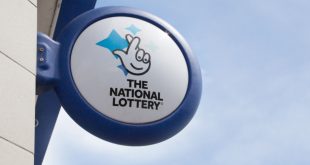
In a new feature series for SBC, the compliance experts of Gambling Integrity dissect the sector’s regulatory and governance challenges. As regulators demand that operators implement Markers of Harm, Gambling Integrity founder Malcolm Bruce questions whether anyone can find a solution to undefined discipline…
If you’re an online gambling company under the critical eye of a conscientious regulator, then you need to look busy doing something to further responsible gambling – and the quest for predictive Markers of Harm to find players with gambling problems is a perfect solution. Expensive though! Buying software or coming up with your own algorithm isn’t cheap. And then there is all the staff needed to proactively deal with any positive findings. But it will keep you looking busy and serious for a long time – possibly forever because it maybe an elusive quest.
This keeps operators busy and regulators too, so it’s a win-win! The regulators’ political masters want them to do something about it! About what? About all that negative public opinion formed by the media running sensational gambling stories about advertising saturation, bankruptcies, theft and suicides. About high-profile cases of fines levied for regulatory breaches, worsening public opinion and the pressure on elected officials. Oh, and about the anti-gambling lobbyists who keep adding miserably to their in-trays.
These are all the reasons why we have the so far fruitless quest to rescue those in danger of being harmed. Fruitless because it is probably doomed to failure in the lifetimes of most of us. Unless of course, ChatGPT turns out to be able to predict what is likely to happen next in our lives. But by that time the machines will likely have taken over anyway and banned gambling for humans, as it is clearly illogical to stake money on random outcomes.
What was wrong with the good old benchmark that analyses how many problem gamblers there are? After all, it does work as a crude model, even though there are too many different measurement instruments, too many ways of conducting surveys and difficulties establishing reliable samples.
Nevertheless, the data we do have indicates that aggregated rates of problem gambling are steadily declining in established and well-regulated gambling markets. Good regulation, enforcement, consumer education and industry action seem collectively to be effective. But no government official is going to publicly commend operators for trying to put their own house in order. More must be done!
What should be done? Forget asking players to answer questionnaires that determine whether they are healthy enough to gamble. No one would agree to filling in one of those before placing a bet. So that leaves trying to second guess who is being harmed by gambling. It means scrutinising how people play and using proxy measures – indicators that might possibly predict someone developing an addiction: proxies like the number of active betting days, average time spent, bet sizes, total number of bets a day, week, etc., etc..
Yet these proxies are far from reliable indicators or in any way usable across different types of gambling to indicate the likelihood of someone having or developing a gambling problem. And there is no adequate testable definition of, or general agreement about, what the ‘harm’ is, in the way we more or less know what problem gambling is.
So, in 2023, the only reliable indicator of being harmed from gambling is, as it always has been, losing more money than you can afford to lose (or buying too many lottery tickets or scratch cards than you can afford). A range of horrible harms are the consequence of using up your disposable income and then your budget for essentials. One is called poverty; another is declining health – physical and mental; another is leaving your family destitute because you gambled away the mortgage repayment. Now these are real harms, and they don’t need an algorithm to detect them.
Should gamblers submit to having their finances raked over by a back-office clerk? Is that sort of intrusion under the guise of an ‘affordability check’ an acceptable form of paternalism to ensure the protection of gamblers? After all, we accept the paternalism that requires body scan searches at airports and pandemic lockdowns.
“The only purpose for which power can be rightfully exercised over any member of a civilized community, against his will, is to prevent harm to others” said philosopher J.S. Mill. My persistence in gambling despite my inability to afford it will harm my family and might even lead me to commit a crime if I get sufficiently desperate.
So, if I want to gamble, I need to accept that I may be required, at some point, to prove I can do so without causing harm to others… That seems a reasonable deal.
Monitoring me with algorithms and looking for Markers of Harm in my gambling behaviour smacks of 1984. Though in an age where my kids can access any sort of material online without any benign monitoring and intervention; where I can access firearms with minimal checks; where I can become addicted to social media and online games on my phone; it seems reasonable and proportionate that I be free to gamble as I choose – if I can afford to. Now where’s the harm in that?









